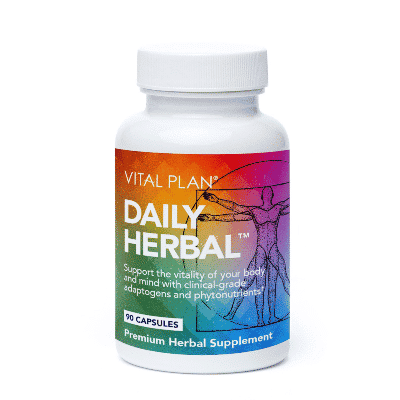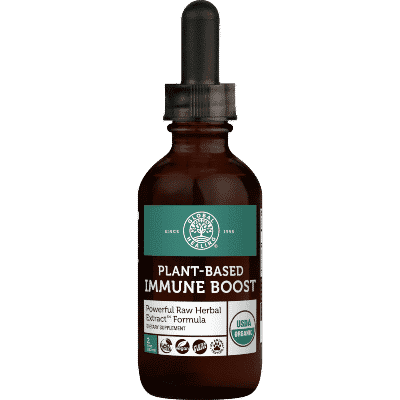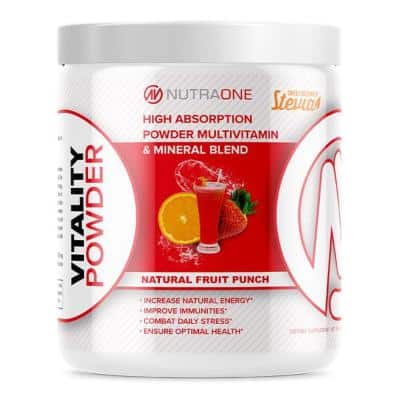
Photo by Candace Mathers on Unsplash
Whether you’ve been taking daily vitamins since childhood or you’ve decided it’s time to supplement your diet with the essential nutrients of a multivitamin, more and more adults are relying on subscription services to deliver their daily nutrition.
From personalized vitamins and supplements for dry skin to supplements to boost your immune system, there’s a vitamin subscription company that meets your needs. Let’s break down the differences between some of the leading vitamin subscription companies so you can choose the best brand for you and the environment.
What are Vitamin Supplements?
Vitamins are nutrients that our body cannot manufacture by itself, yet are essential for its proper functioning. Under ideal circumstances, you should obtain these vitamins through a balanced diet and a healthy lifestyle. However, multivitamin supplements can work to compliment your diet and provide you with complete nutrition. Some, like krill oil supplements, provide a single nutrient or vitamin while others contain a complete range of vitamins and minerals to help support your body. There are also dietary supplements like vegan plant-based protein powders that can help with nutritional goals.
A vitamin subscription allows you to set up a recurring delivery schedule for your daily vitamin supplement to ensure that you never run out, while also allowing you to choose the right types of supplements for you. In addition to vitamins, you can also find probiotics and digestive enzymes to help support digestive and immune health.
Our Top Picks for the Best Vitamin Subscription Brands
Each product featured here has been independently selected by the writer. You can learn more about our review methodology here. If you make a purchase using the links included, we may earn commission.
- Best Overall – Ritual Essential for Women Multivitamin 18+
- Best Plant-Based – Vital Plan Daily Herbal
- Best for Sports Nutrition – Onnit Total Human Complete Supplement Packs
- Best for Immune System – Global Healing Plant-Based Immune Support
- Best Omega-3 – Sunwarrior Algae-Based Omega-3
- Best Vitamin Bite – GEM Daily Essentials
- Best for Personalization – Care/of
- Best for Heart Health – CocoaVia Heart & Brain Capsules
- Best for Energy – Beekeeper’s Naturals B.Fueled Bee Pollen
- Best Vitamin Powder – NutraOne Vitality Powder
How We Chose These Subscriptions
There are a number of factors to consider when committing to a vitamin subscription. Here are a few of the key features that we prioritized in making our list.
- Options: Vitamins and supplements can aid in filling gaps of what you need but aren’t getting from your diet. Everyone’s needs are different, whether you’re pregnant, an older adult, or have medical afflictions such as immune or vitamin-deficiency issues. So having a wide variety of products to choose from can make the difference between a vitamin pack supplier being a go-to, or a hard pass.
- Ingredients: Vitamins and supplements come from raw materials, and it’s important to know how they source those ingredients. With that information in mind, you need to look for a company that does not include fillers, additives, or preservatives in products.
- Testing: Daily vitamins have to be tested to ensure purity, efficacy, and bioavailability of ingredients. Expertise can not be improvised, and some brands even run several tests on their products before making them available.
- Sustainability: If it’s helping you, it should help the planet in the process. Suppliers that work with vegan, natural, organic, and even reusable packaging are a win-win on this matter. Since you will be getting their product delivered regularly, it is an important consideration. We also looked for companies committed to higher standards in their sourcing and manufacturing practices.
- Cost: Depending on the number of recommended supplements, costs might vary from as low as $1 or less per day (in products with small batches) to up to $6 or $7 per day. Keep in mind that access to personalized knowledge centers can be included in some of the plans, and you will receive nutrition and wellness insights and dietary assessments.
Full Reviews of Our Favorite Vitamin Subscriptions of 2021
Best Overall: Ritual Essential for Women Multivitamin 18+

ritual.com
We like that Ritual makes all of its sources and suppliers fully traceable and available to consumers. Its website details the backstory of each carefully-sourced ingredient and the human supplier. This level of transparency is hard to find in the supplement world, and really sets Ritual apart.
Why buy: This women-founded and led business takes female health seriously and provides nuanced and targeted supplements to uniquely meet women’s’ nutritional needs. Their daily vitamin supplements are vegan, gluten-free, allergy-free, non-GMO, and free of synthetic fillers.
Best Plant-Based: Vital Plan Daily Herbal

vitalplan.com
Vital Plan was founded in North Carolina by Dr. Bill Rawls after he sought a more natural and holistic treatment for his chronic pain. An expert in modern herbology, Dr. Rawls formulated botanical herbal therapies that use high-quality, hand picked ingredients that are backed by clinical research and tested by third-party labs.
Why buy: We like Vital Plan’s Daily Herbal supplement because it is a physician-formulated herbal supplement that can naturally support total body wellness. Vital Plan is also a certified B corp, an Environmental Working Group supporter, and a Pledge 1% member.
Best for Sports Nutrition: Onnit Total Human Complete Supplement Packs

onnit.com
Onnit Total Human Complete Supplement Packs are designed to deliver all of the vitamins and minerals you need to perform at your best in a convenient form. Instead of providing a single multivitamin, these supplements are divided into one pack for daytime support and another for nighttime support to give your body the nutrients it needs when it needs them.
Why buy: We like that Onnit Total Human packs offer different groups of clinically-researched vitamins and nutrients for different times of the day. The Day Pack includes support for focus, energy, and endurance while the Night Pack is meant to help with relaxation, rest, and recovery.
Best for Immune System: Global Healing Plant-Based Immune Boost

globalhealing.com
This Global Healing Plant-Based Immune Support supplement offers a natural way to help support your immune system with USDA organic herbs, mushrooms, and aromatics. This all-in-one formula contains ingredients like organic elderberry, echinacea, enokitake mushrooms, birch polypore mushrooms, olive leaf, and pine bark.
Why buy: We like this liquid vitamin supplement from Global Healing because it is USDA organic, vegan, non-GMO, gluten-free, and not tested on animals. This plant-based formula makes it easy to help boost your immune response by taking one serving per day. You can even mix it into juices or smoothies.
Best for Omega-3s: Sunwarrior Algae-Based Omega-3

sunwarrior.com
Sunwarrior offers a unique omega-3 supplement that is a great alternative to traditional fish oil. They go straight to the source and derive their omega-3 DHA and EPA from sustainably-grown and harvested algae. These vegan softgels can help support heart, brain, eye, and joint health with plant-based nutrients.
Why buy: We love that Sunwarrior Algae-Based Omega-3 supplements provide a completely plant-based alternative to fish oil supplements. Use these softgels to get all of the benefits of omega-3 DHA and EPA fatty acids from a source that is better for our oceans and planet.
Best Overall: GEM Daily Essentials

dailygem.co
GEM is unlike any other supplement subscription on the market. Instead of sending powders or pills, your monthly GEM delivery contains chewable nutrition bites made with whole-food ingredients like spirulina, chia seeds, quinoa and dates. These are real food supplements made with plant-based ingredients.
Why buy: Their ingredients are carefully selected from trusted sources for maximum nutritional benefits and minimal processing. Each bite looks like something you could mix up in a food processor at home. We also love that your first month is delivered in a refillable tin and every subsequent month’s bites come in a compostable pouch for waste-free packaging.
Best for Personalization: Care/of

takecareof.com
Care/of has made a loud and public commitment to increasing the sustainability of their single-serving, daily dose personalized vitamins. The brand recently switched to fully compostable, plant-based packaging, the first step on their way towards a more sustainable business. Their basic multivitamin starts at , but you can also take a quiz for a personalized mix of daily vitamins.
Why buy: We like that Care/of offers both western-style letter vitamins and traditional ayurvedic herbs like ashwagandha and reishi for those looking for alternative solutions.The brand is also transparent about its sourcing from around the world, and it maintains close relationships with the producers who supply their products.
Best for Heart Health: CocoaVia Heart & Brain Capsules

cocoavia.com
CocoaVia Heart & Brain supplements are meant to improve cardiovascular health, brain health, and overall wellness. Each CocoaVia serving (2 capsules) contains 450 mg of cocoa flavanols, which is the beneficial nutrient found in dark chocolate. This is a plant-based nutrient proven to improve heart and brain health when consumed daily at high levels.
Why buy: We like that CocoaVia capsules are backed by 20 years of research and over 30 clinical studies, and they are independently lab tested for quality. CocoaVia also partners with family farmers in Indonesia and carefully extracts the cocoa flavanols from the plant to maintain the true essence of the natural crop.
Best for Energy: Beekeeper’s Naturals B.Fueled Bee Pollen

beekeepersnaturals.com
Beekeeper’s Naturals offers a subscription option for their B.Fueled Bee Pollen supplement that can provide protein and B vitamins to help keep you going. This sustainably sourced raw wildflower bee pollen also contains free forming amino acids and antioxidants that can give you an energy boost for workouts or busy days.
Why buy: We love that Beekeeper’s Naturals offers an easy way to enjoy “nature’s multivitamin” with this sustainably sourced bee pollen. It contains wildflower bee pollen and nothing else, for a clean source of energy with no added sugars, artificial sweeteners, preservatives, gluten, wheat, corn, dairy, or soy.
Best Vitamin Powder: NutraOne Vitality Powder

5starnutritionusa.com
NutraOne Vitality Powder delivers all of your daily vitamins, minerals, and even digestive enzymes, in a convenient and highly-absorbable powder. You can mix in a scoop of powder with a glass of water each day to help boost your energy, immune system, metabolism, and support strong bones.
Why buy: We like that this multivitamin powder also includes digestive enzymes to help promote better digestive health so you get more nutrients from the foods you eat. NutraOne Vitality Powder can also help boost your metabolism to help you manage blood sugar, blood pressure, inflammation, and mood. It’s also naturally sweetened with stevia leaf extract
What to Look for in a Vitamin Subscription Service
These days, there are more and more daily vitamin packs available. Dietary supplements are just another industry that has jumped onto the subscription train. As a consumer, it can be hard to cut through the noise around vitamins, supplements, superfood powders, prenatal, and other “good for you” dietary additions.
How can you be sure that a vitamin subscription service is right for you and reach your health goals? There are a few things to look out for.
First, where does the company source its ingredients? Just like with food, where your vitamins come from matters. And because there aren’t strict governmental regulations on supplements, it’s even more important to investigate how transparent your vitamin brand is.
Look for a brand that promises to include no fillers, additives, or preservatives in their products. Gluten-free and corn-free vitamins is also a good sign, as corn and wheat are often used as fillers to bulk up pills without any nutritional benefit.
Many of the brands below offer full transparency about where their products come from and even the specific suppliers they work with. You should check each ingredient of each vitamin in your subscription box.
The other important question to consider from a sustainability perspective is packaging. If you’re having vitamins delivered to your home every 30 days, tiny plastic bottles, lids, cardboard, and bubble wrap can add up quickly.
Several companies listed below offer refillable packaging and use only materials that can be reused, recycled, and often composted. Choose from a brand that wants to deliver a daily dose in as little plastic as possible.
What are the Benefits of a Vitamin Subscription?
These services provide customized nutrients in convenient packs for daily health and wellness improvement. Not only can they give you more targeted dietary recommendations, they can help you identify any deficiencies that you can correct with a supplement to optimize your health. Not to mention that they offer the convenience of delivering your personalized supplement packs directly to you. And with a subscription, you’ll never run out of your daily vitamins.
Should You Take Vitamin Supplements?
Whether you’re looking for a complete vitamin recommendation, like prenatal vitamins, to control allergies by caring for your immune health, to lose weight, or trying to correct for a vitamin deficiency, there’s a vitamin subscription for you. There are daily vitamin packs that can boost every type of person and every type of health goal. And with a personalized vitamin pack, you can get a curated supply of supplements that will best work with your body’s needs.
What are Some of the Most Common Vitamin Supplements?
If you don’t know where to start, here are some of the most crucial vitamins the body needs to function:
Vitamin D: Vitamin D plays a pivotal role in a number of bodily functions, and can help improve a range of ailments and conditions, including poor bone health, type 1 diabetes, metabolic syndrome, and hypertension.
Magnesium: Magnesium is important for muscle and nerve functioning, and it has been recently touted for its ability to reduce the frequency and symptoms of migraine, headaches, as well as improving sleep.
Fish Oil: This supplement contains omega-3 fatty acids, which help In everything from cardiovascular health and brain functioning to arthritis and inflammation.
Vitamin C: Researchers have found that vitamin C acts as an antioxidant, which can lower the risks of cancer, cardiovascular disease, age-related macular degeneration. It also plays an important role in the immune system.
Takeaway
When selecting a vitamin subscription service to commit to, it’s important to consider everything from the ingredients to the packaging materials. Some subscriptions use a simple questionnaire and an algorithm to pick your vitamin regimen. Others may ask you to submit to a blood test or DNA test. How personalized you want your program to be is up to you.
We recommend consulting a healthcare professional or registered dietician if you’re making any major decisions about your health. Also take into considerations any potential allergens or the availability to supporting health products at your local drugstore to build out your routine.
Lizzy Briskin is the founder of Earthen Food Co. She is a chef, food writer, and recipe developer who helps people eat more mindfully for themselves and the environment, without overthinking it.
- 7 Healthy Foods That Are High in Vitamin D - EcoWatch
- 15 Health Benefits of Vitamin D - EcoWatch
- 2021 Seed Probiotic Review: Can It Improve Digestive Health?
- 6 Best Mushroom Supplements of 2021: Guide and Brand Reviews
- 9 Best Probiotics for Women in 2021: Guide and Brand Reviews
- 9 Best Energy Supplements to Try in 2021

 233k
233k  41k
41k  Subscribe
Subscribe 